Good People for the Resistance: I’m often asked how I stay motivated to write Good News when there’s so much bad news coming at us. It’s simple: I do my best to surround myself with Good People. I’m fortunate to count among my friends people like Elaine, who teaches 8th grade English in a largely immigrant community, and Billy, who has spent most of his adult life working to eliminate childhood hunger in the U.S. I focus on and appreciate what makes people like Elaine and Billy so good. And now, I’m going to share their stories with you. DRUM ROLL, PLEASE…
Introducing, Good People, a twice-monthly interview with people who give me hope during these dark times. I have a roster of Good People I’m itching to share with Good News readers. And I bet we’d all like to know the Good People in your lives, too. Leave a comment and tell us who they are, and how their goodness motivates you. Who knows? One day I may call them up, interview them, and share their goodness with the world. (Yes! We have Good News readers in Mexico, France, England, Canada, New Zealand, Germany, and more!).
First up: Dolly Chugh, a social scientist who studies the psychology of good people, author of The Person You Mean to Be. Dolly encourages us to stop trying so hard to be a Good Person, but rather, to strive for a higher standard, of being Good-ish. Her Ted Talk, one of the top-25 of 2018, has over 3-million views. Dolly’s day-job is an NYU Stern School of Business professor. Even though she disagrees with my language, I think Dolly is a Really Good Person. I’ve known her for over a decade, yet what I didn’t know before this interview is that in tough situations Dolly is sometimes a total wimp. She confesses to having decidedly “un-activist” thoughts during a Black Lives Matter protest, and a “polite” strategy to avoid shaking Trump’s hand if the situation ever presented itself. Frankly, it was refreshing to know that one of the most good people I know is a mere mortal. Or, in her words, Good-ish.
Meet Dolly Chugh
Q: Your website says that you study the psychology of good people. What’s a “good person?”
Most of the time, most of us think we are good people. What I study is the gap between what we define as being a good person and our actual reality. For example, many of us think we are egalitarian when it comes to gender and race. But the majority of us are not — there’s a lot of unconscious race and gender bias. So, the problem really lies in thinking of being a good person as either / or – either you are a good person or you are not.
Q: Are you a good person?
I fall short of being a good person daily. Yesterday I was walking on a street in NYC and a black man approached and tried to sell me something. Immediately, I didn’t trust his motives. If he were white, would have I reacted the same way? I don’t know. I don’t like that there is a chance I would have been more open to the message, but for a split second there, I think there might have been. I do think I am a good-ish person, however, because mortifying as that example is, I’m willing to notice it and reflect on it. Good-ish people keep getting better, whereas good people see themselves that way, with no room for growth.
Q: Do you have any friends or relatives who are Trump supporters? How do you talk to them about Trump?
We live in the Red State known as Long Island. We know a lot of Trump supporters. I use humor a lot. Yet, I am not super-courageous in those conversations – I try not to veer towards politics.
Q: Where do you get your news?
I’m struggling with this. Mostly Cnn.com, Nyt.com and social media. I would like to read other perspectives, but I just can’t go to Fox.com.
Q: Have you ever participated in a protest?
The first protest I ever participated in was a Black Lives Matters protest in NYC. The protest ended at Toys ‘R Us in Times Square, where we were going to do a “die-in” in the toy gun section, protesting the murder of Tamir Rice. I felt inspired and at the same time totally out of place. Plus, during the protest I was having decidedly non-activist thoughts; it was Christmas time, and I started looking at the toys thinking maybe I could get them for my kids. My lack of “wokeness” was very evident. I think it’s so important to go to these protests in person because they are often far more peaceful and thoughtful in reality, and not just learn about them from the media, which will naturally focus on the bad news stories. Lying in the toy gun section I realized I wasn’t a very good protester, but I knew I had a role to play, and I started searching for that role. Silence is not the right option.
Q: Which app is currently on your phone that you could not live without?
Audible. I love memoirs and non-fiction read by the author. My favorites are Sidney Poitier; Angela’s Ashes; The Warmth of Other Sons; Trevor Noah; Tina Fey. Also, Reading with Patrick by Michelle Kuo, about an Asian-American woman teaching in a rural black community in Arkansas.
Q: What’s your favorite popular TV series?
This is Us. It’s smart, and I like things that show you where the seed of something was planted, yet no one realized it at the time. And that the show lets you see the same scene from the perspectives of multiple people. I love all of the characters. Lately I’ve been watching a few minutes of West Wing before I go to bed. When I watched it years ago I didn’t realize how sexist it was so I’ve grown in that area, but it’s still full of hope and wit.
Q: What song or singer do you like that you rarely admit to liking?
All my musical tastes are embarrassing. I love Billy Joel. His song, Scenes from an Italian Restaurant is the single best song ever.
Q: If you were on a sports team that Trump invited to the White House, would you go? Would you shake Trump’s hand?
We have had so much conversation about this in our house. When the Baylor women’s basketball team went, I understood why they made that choice. They did it to elevate women’s basketball, a sport where it’s hard for women athletes to survive. The visibility makes a difference. It’s harder to excuse high-profile men’s teams that go. I may do it to elevate women’s basketball, but if I were a coach I would not mandate that anyone go. As for shaking his hand, I would do everything I could to stay way in the back so I wouldn’t have to. I’m a total wimp in those sorts of situations.
Q: Whom do you admire?
Joe McNeil, one of the original Greensboro Four; he was 18-years old when he and his friends sat at the Woolworth’s lunch counter and refused to leave. This was an amazing act of courage. What I find so powerful about him is that when he was a guest speaker in my class, and a student asked him about gay rights, he stumbled. He didn’t know what to say, and what he did say wasn’t what the students necessarily wanted to hear. The following year when he came back, he was a different person. It was clear he had been reading and talking to people about gay rights, he’d taken it upon himself to learn about the issue. He says the work of being a good person is never done. He’s in his 70s now, still learning. He embodies what it means to be a good-ish person.
Q: Who’s your 2020 Presidential Dream Team?
Cory Booker as President. I’ve thought less about Vice President.
Sign Up. Show Up. Never Give Up.
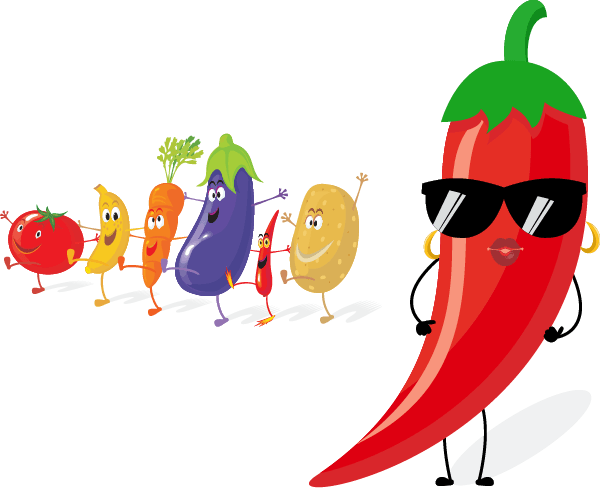

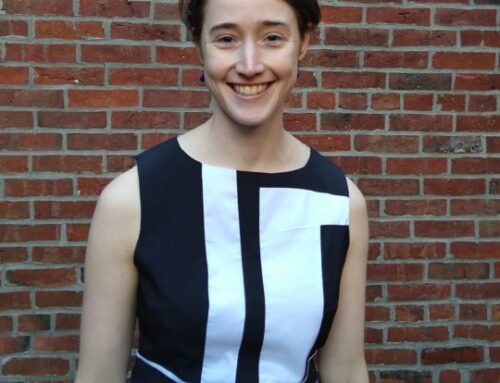

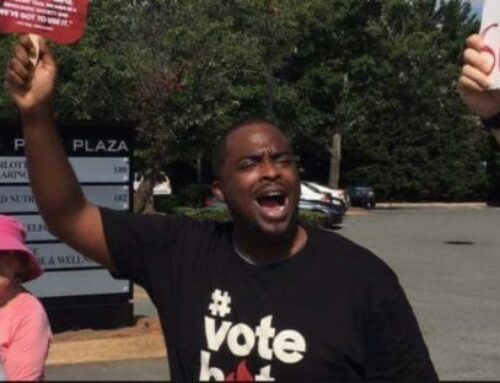
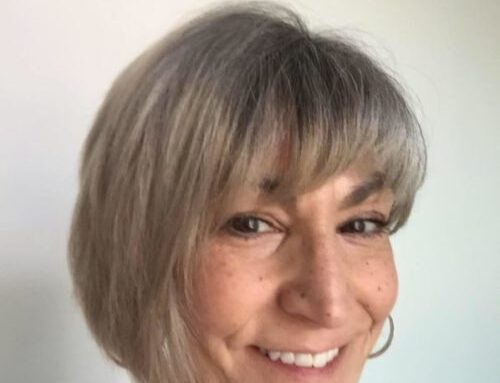
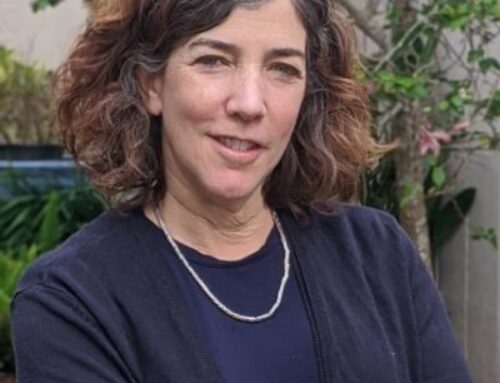
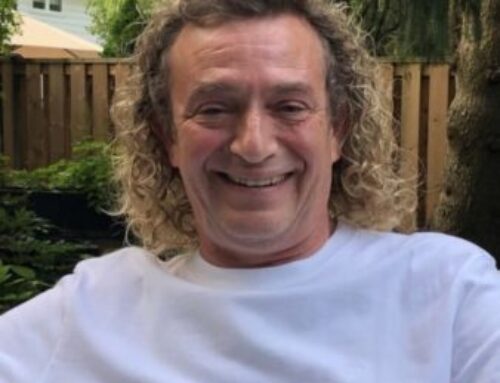

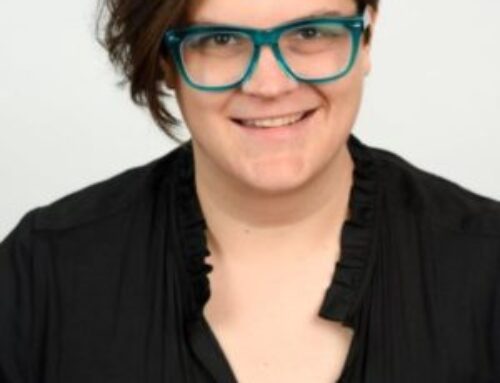
I love this new feature and I love Dolly’s “good-ish” concept!
Bravo on this inspiring new feature! It’s reassuring to learn that wimping out in some situations doesn’t mean we’re wimps altogether. But we can reflect on those experiences and do better in other ways. Thank you, Dolly!
Love this new feature too and you started off with a bang profiling one of my new heroes! To anyone who has not read Dolly‘s book, I can’t recommend it enough. Her story about Joe McNeil, which is in the book, is just one example of how this book will help you get more comfortable with the reality that you probably do not and cannot always know or say the right thing, but having the hard conversations is still worth revealing your vulnerability and ignorance – and ultimately will make you a better — or “gooder” person for it.